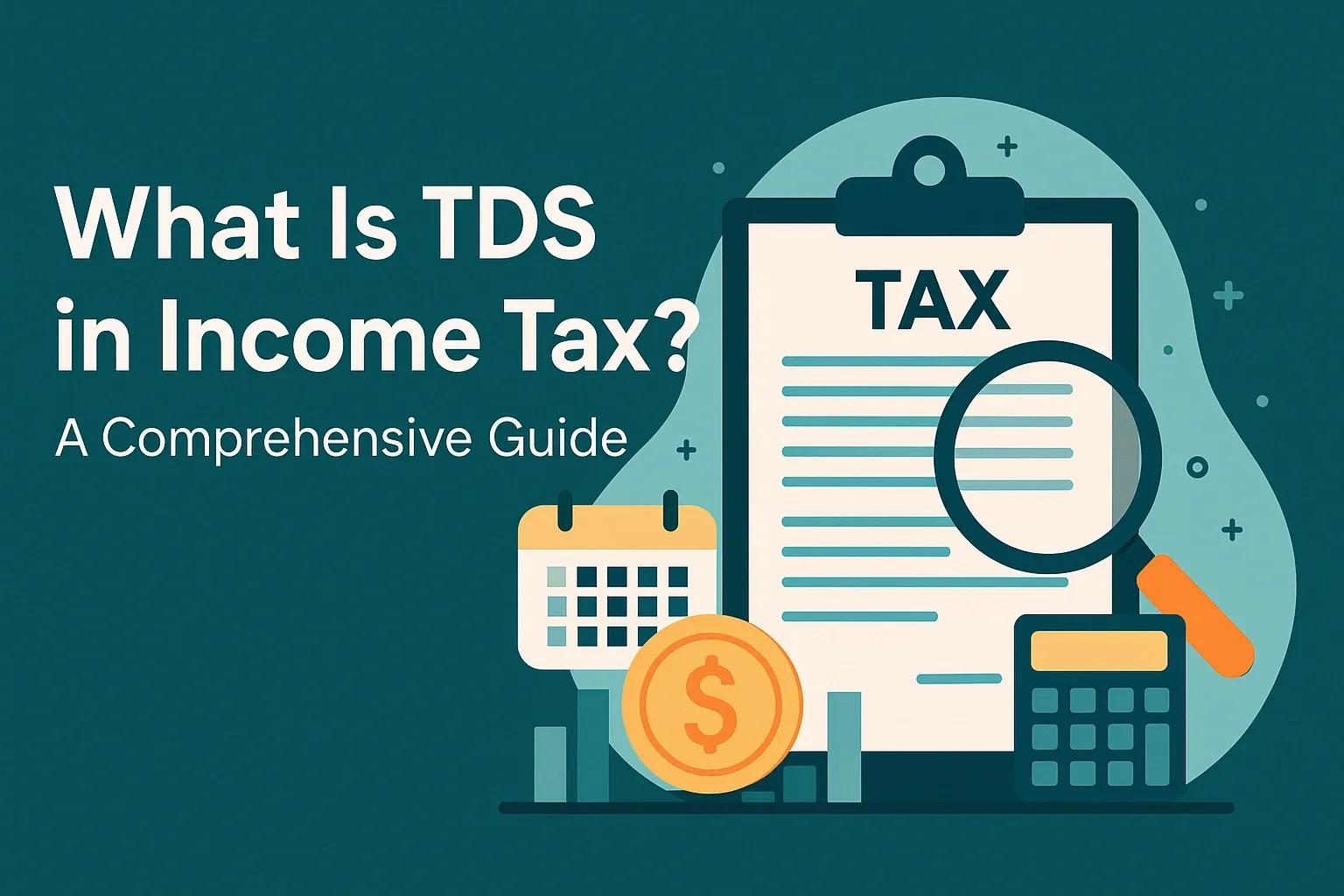What is TDS in Income Tax? A Comprehensive Guide by EximPe
Complete guide to TDS (Tax Deducted at Source) in India - 2025 rates, deduction rules, refund process & key differences from income tax

Tax compliance is an issue that is critical for both businesses and individuals to understand. The most popular tool in the Indian Revenue system is TDS. In this article, we'll explain the meaning of TDS in income tax, the importance of TDS and how it affects your money in 2025.
What is TDS in Income Tax?
The full form of TDS in income tax is "Tax Deducted at Source". It is a way in which the tax is deducted directly when making payments. The payer who pays the money deducts the tax at a certain percentage. Some payers include employer, bank, business, etc., while some payments are like salary, interest, rent, commission, professional fees, etc. This sum is then automatically sent to the government as a payment to the recipient.
The meaning of TDS in income tax is quite simple in fact: it's a method by which the government collects tax at its very source, effectively reaching the point of income generation, ensuring a regular cash flow, and preventing tax evasion to a large extent. So, the deducted TDS can be refunded to you or adjusted against your total tax liability while filing your Income Tax withdrawal (ITR) return.
Is TDS and Income Tax the Same?
One such question is - Is TDS and income tax the same thing? The answer is negative: No, TDS is a type of advance tax that is deducted at regular intervals, whereas income tax is calculated based on the annual income, which is paid at the end of the financial year. There are a number of deductions from total income on which income may be taxed, which are deducted at the source by the payer and deposited with the government. The taxpayer is not allowed credit for any tax on this income.
TDS Rate Chart Income Tax Site (FY 2025-26)
The TDS rate chart of the income tax website is revised every year, providing the applicable rates while making payments. Some of the important rates for FY 2025-26 are as follows:
- Pay: As per the tax slab rate of income tax
- Bank deposits interest:10%
- Rent (₹6 lakh rent and above): 10%
- Professional fees: 10%
- Payments to contractors: 1% (individual/HUF), 2% (others)
- Winnings from lotteries/games: 30%
For thresholds and rates, thresholds will be dependent on the type of payment and status of the recipient. For a complete and current TDS rate chart, as always, refer to the official income tax website or consult with a professional tax expert.
Why is TDS Important?
- Prevents tax evasion: By taxing at the source, tax is collected as income is earned.
- Ensures regular revenue: It ensures that a regular flow of funds becomes available for the government.
- Simplifies compliance: Taxpayers can claim TDS credits at the time of filing their return, which makes the process more transparent.
Conclusion
TDS income tax is a crucial component of India's tax regime. Every taxpayer must be aware of the TDS full form in income tax and the meaning of TDS in income tax along with the TDS rate chart on the income tax site. Keep in mind that TDS and income tax are not the same, but they are both important for meeting your tax obligations. For customized solutions or trouble-free TDS compliance solutions, Eximpe is there to help you go through every step with ease!
Stay compliant, stay informed!
FAQs
1. Who is responsible for deducting TDS?
The person or entity making specified payments, such as an employer, bank, or business, is responsible for deducting TDS before making the payment to the recipient.
2. On which payments is TDS applicable?
TDS is applicable to various payments, including salary, interest, rent, professional fees, commission, contractor payments, and lottery winnings, among others.
3. Can I claim a refund if excess TDS is deducted?
Yes, if the TDS deducted is higher than your actual tax liability, you can claim a refund when filing your Income Tax Return (ITR).
4. How can I avoid unnecessary TDS deductions?
You can submit Form 15G (for individuals below 60 years) or Form 15H (for senior citizens) to your bank if your total income is below the taxable limit, so TDS is not deducted from your interest income.
5. What happens if I don’t provide my PAN to the deductor?
If you do not provide your PAN, TDS will be deducted at a higher rate, typically 20%, and you may not get credit for the deduction.